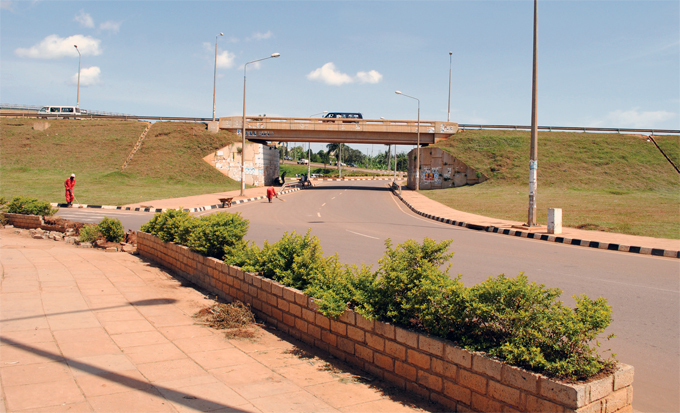Water,transport ministries fulfill NRM pledge
NRM Manifesto supplement
Water ministry implementing NRM manifesto
By Jacquiline Emodek
Changes in climate and weather patterns, which, in recent times, have manifested through long spells of drought, leading to shortage of food and water for both domestic use and production, call for a sustainable approach towards addressing the challenge.
Climate change has been attributed to environmental degradation, with the forest cover gradually declining from 11% in 2010 to 9% in 2015 and currently at 8%.
The wetlands have not been spared, either and the country continues to face other challenges such as pollution.
All these challenges have a negative impact on the climate and environment, which affects social and economic development.
According to Festus Luboyera, the executive director of the Uganda National Meteorological Authority, climate is an important factor in the social and economic development of the country, as it influences the development of all sectors of the economy.
"Virtually all sectors need information on weather. However, the key sectors that we mostly serve include transport, mainly aviation and marine, defence, agriculture, disaster preparedness, environmental and water resources management, tourism and construction industry," Luboyera says.
Also, the 2016-2021 NRM manifesto observes that when wetlands are protected, they contribute to increased catchment water discharge volume and, thus, enhance and sustain hydroelectric power, water for production, agriculture production and tourism development and construction potentials.
 The NRM has the goal of ensuring access to clean and safe water
The NRM has the goal of ensuring access to clean and safe water
The Government attaches great importance to fragile ecosystems for the intrinsic and economic value they offer to livelihoods.
This is evidenced by the fact that the country is a party to various international conventions and has prioritised the restoration of fragile ecosystems in its national and sector-planning frameworks.
That is why the NRM Government, through the water and environment sector, put in place strategic objectives and targets to guide the implementation of the manifesto.
The water and environment sector worked with the different departments it is composed of namely, National Water and Sewerage Corporation (NWSC), National Forestry Authority (NFA) and National Environment Management Authority (NEMA) to implement the strategies and realise the goals that the manifesto set out to achieve. CLICK HERE FOR MORE ON THIS STORY
A developed transport system is vital for a country's progress
By Owen Wagabaza
Until fi ve years ago, Ssemuto in Nakaseke district was a village just like any other in the country-side. It was sparsely populated, rural, and sleepy, with little or no economic activity going on.
However, after the completion of the Matugga-Ssemuto-Kappeka road, the village changed in a blink of an eye.
The once unattractive rural Ssemuto suddenly became an attraction, for investors, traders and other kinds of people all interested in setting up residence in the area.
Ssemuto has since become a vibrant town, dotted with factories, shops dealing in almost everything, as well as mushrooming residences.
"As a result of the growing population, the residents' income has also increased tremendously, because of the available market for their agricultural products. Currently, a 50x50ft plot of land goes for over sh10m, yet before, an acre did not even cost that much," says Matovu Ndugwa, a resident of Ssemuto.
 A junction on the Northern Bypass. A well developed road network boosts agricultural growth
A junction on the Northern Bypass. A well developed road network boosts agricultural growth
An effective and effi cient transport system provide, economic benefi ts that result in multiplier effects such as better accessibility to markets, employment and additional investments.
Consequently, citizens who are deprived of transportation infrastructure miss out on several economic opportunities.
"The development role transport plays in an economy makes it a derived demand, as the sector in itself is not productive, but is responsive to the forces of production and consumption. Generally, a model for transportation and economic development can be summarised as providing infrastructure and therefore, improving physical accessibility, enhancing mobility and improving welfare," Adam Balondemu, a development economist, says.
Below, we look at how a developed transport system can impact agriculture, education and industrialization.
Transportation and agriculture
The lack of transport services, or problems associated with those available, are major constraints to agriculture and rural development.
According to Balondemu, agrarian communities like Uganda are highly dependent on a reliable transport system for internal transportation and for linking rural communities to the market centres to sell their farm products and buy farm inputs.
When transportation is provided, its importance in transforming the lives of rural residents can be appreciated, because over 50% of Ugandans live in rural communities.
The access created can have the impact of increasing productivity because farmers have access to markets. CLICK HERE FOR MORE ON THIS STORY
ADVERTISER
WORKS AND TRANSPORT SECTOR A
WORKS AND TRANSPORT SECTOR B